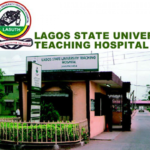Uzodimma, a shining example of backward integration
January 12, 2022
Ken Uwaoma argues that Governor Hope Uzodimma’s continued patronage of indigenous products and services is a sure path to job and wealth creation and urges other leaders to follow this path of backward integration.

At the crest of Nigeria’s political leadership, Governor Hope Uzodimma of Imo State is winning the hearts of many Nigerians as a patriotic leader and one who understands and practices the concept of backward integration. This is to be seen in the increasing value of local content both in strategic services, products and contracting in Imo public service.
A bold statement by the Governor on this score is the number of Innoson vehicles in Imo public service. They are legion and it speaks to Governor Uzodimma’s grasp of the tenor and undercurrents of modern economics and consumer nationalism.
Innoson Vehicle Manufacturing company (IVM) products are assembled in Nnewi, Anambra State but the vehicles enjoy good visibility in Imo. The Governor showed early signs of his inclination towards Made-in-Nigeria vehicles from Innoson barely three weeks into his administration when he handed over Innoson brands to the Head of Service and permanent secretaries of the various state ministries. He said the gesture was in tandem with the three Rs of Rehabilitation, Reconstruction and Recovery that govern the philosophy of his government. He was optimistic that the gesture would help improve service delivery and encourage the heads of the ministries to step up their dedication to duty for the uplift and economic development of the state.
Any visitor to Imo state would not miss the growing presence of IVM vehicles on the roads. Governor Uzodimma’s bold and commendable step has triggered a rash of interest for IVM vehicles in the general populace. Seeing IVM vehicles in the governor’s convoy, among his cabinet members and net worth persons in the state has stirred a well of passion for locally-assembled vehicles among the upwardly mobile younger generation. And Innoson is profiting from this new wave of craving for indigenous vehicles. This is a practical example and demonstration of backward integration.
In 2021, he handed over 100 units of rugged IVM patrol vans to the security apparatchik in his state to beef up the capacity of Operation Search and Flush, the special purpose anti-crime squad in the state. The fleet is a mix of the terrestrial savvy and highly acclaimed IVM G12 special purpose vehicle popular with the Nigerian military and the IVM {troops} Carrier famed for its strength and dominance during moments of time-critical emergencies.
Any visitor to Imo state would not miss the growing presence of IVM vehicles on the roads. Governor Uzodimma’s bold and commendable step has triggered a rash of interest for IVM vehicles in the general populace. Seeing IVM vehicles in the governor’s convoy, among his cabinet members and net worth persons in the state has stirred a well of passion for locally-assembled vehicles among the upwardly mobile younger generation. And Innoson is profiting from this new wave of craving for indigenous vehicles. This is a practical example and demonstration of backward integration.
President Muhammadu Buhari who revived the Buy Nigeria policy as a way of promoting local content and creating jobs across multiple sectors should be happy with Governor Uzodimma. President Buhari more than any other president is comparatively succeeding with the implementation of the local content policy.
Successive Nigerian governments have at various times reeled out policies and initiatives to encourage patronage of Made-in-Nigeria products, but on each occasion, these beautiful policies fail because of lack of sincerity by government actors who ought to lead by example. Uzodimma has avoided this slippery path. He has moved from talking the talk to walking the talk. This is where most Nigerian leaders, at various levels, failed. They push out good policies that would promote development and reflate the economy but fail when it comes to implementation.
President Muhammadu Buhari who revived the Buy Nigeria policy as a way of promoting local content and creating jobs across multiple sectors should be happy with Governor Uzodimma. President Buhari more than any other president is comparatively succeeding with the implementation of the local content policy.
Nigeria has had a long romance with local content promotion dating as far back as 1971 when the government established the Nigerian National Oil Corporation, (NOC). It was intended to promote local content in the oil and gas sector under the indigenization policy. Ever since, various governments have made efforts to implement and achieve a critical mass of local content in diverse sectors of the economy.
The Local Content Development Act, 2010 is part of the policy planks of the Nigerian government to deepen local content particularly in the petroleum sector. This has created a sizzle in other sectors and elicited the need for Nigerians to Buy Nigeria, Use Nigeria and Eat Nigeria. But it’s the Buhari government that seems to have given more impetus to driving the local content value system on all sectors of the economy while still not losing focus on the petroleum sector.
The case of IVM and Governor Uzodimma’s continued patronage therefore gives real essence and meaning to how Nigeria can achieve self-sustenance and economic buoyancy through backward integration. By patronizing IVM products at the scale he’s doing, Uzodimma is not only helping to create a stronger future, he’s guaranteeing a better today.
Experts have continued to insist that the surest path to socio-economic development for any nation is for such nation to create the right environment that would make the private sector thrive. When the private booms, jobs are created, wealth is democratised, citizens’ purchasing power is enhanced and the government gains through taxes. But beyond a stable and conducive environment, what serious governments do is to patronize their respective local companies, consume home-made goods and apply home-grown services. This is the context to appreciate the drive and desire of Governor Uzodimma to stick with Innoson products. It took the patronage of Japanese governments and citizens to announce to the world of the existence of Honda and Toyota automobile products among other products including consumer electronics, computers, iron and steel, semi-conductors, etc.
In South Korea, home of Hyundai, Kia, Samsung electronics among other Chaebols, patronage started from home. Hyundai, for instance, is the leading car-maker in South Korea accounting for over 41.5 percent of the automobile sales in the country, followed by Kia Motors (34.8%), Genesis (6.8%). Renault Samsung Motors, SsangYoung and GM Korea make up the rest in market share, according to Statistica. All of this automobile brands from South Korea have gone global competing with the best brands in the world. It took local patronage by government of South Korea at all levels and citizens for Hyundai and others to attain the masterpiece status of today and gain global visibility.
Today, take a trip to Seoul or Busan in South Korea. Most of the vehicles on the roads are Made in South Korea including vehicles used by public functionaries. South Korea first patronized South Korea before their products acquired global appeal.
At Independence in 1960, South Korea was far beneath Nigeria in GDP per capita relative to the values of the naira and South Korea currency (won). Today, the story has changed. By 2017, GDP per capita in Nigeria was $5,900 while that of South Korea was $39,000. This is largely because of the drastic dip in the value of the naira which is tied to the nation’s dependence on crude oil export. When the price of crude crashed at the international market, the naira also crashed at the forex market. Without growing her primary sector to boost manufacturing in automobiles, consumer goods, electronics, stationery, household products, agric-based products, Nigeria suffered heavy imbalance of trade, including trade with Asian nations some of whom looked up to Nigeria in the 60s and 70s.
In South Korea, Japan, India, other Asian nations, their governments have built their economies on the strong props of backward integration. The government of Japan led from the front by using automobiles made in Japan. It’s called product nationalism. It’s the spirit of market protectionism. The Japanese took a stand on Japan first. Indians, South Koreans did the same. Very recently, despite the advancement of America in all spheres of life, the Donald Trump presidency openly mouthed America First as his campaign slogan
The likes of Toyota, Honda et al were not as sophisticated as they are today yet the government and the people of Japan stuck with them. It’s from such home patronage that they grew in stature to attain the global popularity and sophistication ascribed to them today. Nigerian governments at all levels should as a matter of deliberate policy insist of patronizing indigenous products from automobiles, tech to consumer goods. If government leads from the front by doing what it preaches: Buy Nigeria, Eat Nigeria, Use Nigeria – then the people would join the train and Nigeria’s local industries will thrive. Governor Uzodimma has set the pace by patronizing made-in-Nigeria and ipso facto engendering the realization of the Federal Government vision of boosting local content in all aspects of the economy, other governors, especially starting from the South East, should follow this honourable path.
But it is not only in automobile technology that Governor Uzodimma has shown a predilection to patronise local products and services. In accordance with the spirit and letter of the Local Content Act, he has extended local content promotion to services and contracting by engaging Nigerian engineering firms in the construction of infrastructure and provision of sundry services in the state.
While handing over 100 units of patrol vehicles to the security squad in Imo, the governor reiterated his firm belief that no benevolent foreigner will develop Nigeria except Nigerians. He said his resolve to patronize local products and services was not only hinged on product nationalism but also on his conviction that home-grown products and services are as good as any in the world.
But it is not only in automobile technology that Governor Uzodimma has shown a predilection to patronise local products and services. In accordance with the spirit and letter of the Local Content Act, he has extended local content promotion to services and contracting by engaging Nigerian engineering firms in the construction of infrastructure and provision of sundry services in the state.
President Buhari, more than any Nigerian leader, has pursued the implementation of local content inclusion as a strategy to bolster the economy including the historical signing of Executive Order number 5 which seeks to give preference to Nigerian Companies in the award of contracts in line with Public Procurement Act of 2007. The Council for the Regulation of Engineers in Nigeria (COREN) through its President, Mr. Ali Rabi, has continued to push for more implementation of this Order. At the state level, Governor Uzodimma is a shining example of how products and services nationalism can be deployed to foster economic growth. President Buhari would be proud of what Imo has achieved in this regard.
- Uwaoma, a public policy analyst, writes from Awka.








